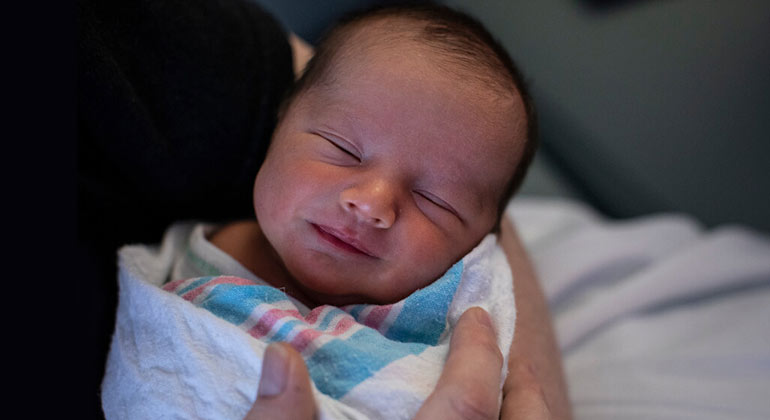Rapid Genome Sequencing

If your child is very sick, your doctor may recommend a test called “rapid genome sequencing (rGS)”. This state-of-the-art test allows us to look at your child’s genes. We can then see if changes in their DNA are causing a medical condition or disease that is harming their health. rGS can uncover conditions including muscle diseases, seizure disorders, congenital heart defects, chromosomal disorders, and more.
Mount Sinai Kravis Children’s Hospital provides rGS testing for patients in both the neonatal intensive care unit (NICU), pediatric intensive care unit (PICU) and pediatric cardiac intensive care unit (PCICU). Along with your child’s doctor, our genetic specialists are here to answer your questions and help you make decisions about testing.
Testing
rGS requires blood and/or saliva samples from your child and both biological parents. We use the samples from the parents to help us see if any damaging DNA differences have been passed down from the parents or if they are new to your child. Testing is sent to a specialized genetic testing laboratory, and results are typically available within one to two weeks.
Test Results
After testing is completed, your child’s doctor or genetic counselor will discuss the results with you. Your child’s test results may impact their immediate care. If we discover the underlying cause of their medical condition, we can better determine the best course of action for your child. Results can be helpful to guide additional specialists who should see your child and, in some cases, suggest specific medications that can help them.
The results of this test can be positive, negative, or uncertain.
- A “positive” test result means we have identified the DNA changes that cause or contribute to your child’s medical condition.
- A “negative” test result means DNA changes have not been found that clearly cause or contribute to your child’s medical condition.
- An “uncertain” result means we have found DNA changes, but we cannot say for sure if they have contributed to your child’s medical condition.
We provide as much information as possible about your child’s condition (their diagnosis) as well as guidance on future risks (prognostic information). Your child’s care team, including geneticists and neonatologists or pediatric intensive care doctors will help you understand all the possible risks. This testing will also tell us if other family members are at risk for passing down a condition to future children. If necessary, we may recommend more testing.
Why Mount Sinai
The Mount Sinai Kravis Children’s Hospital is ranked as one of the top children’s hospitals in the country. Our health care team understands that having a child in the ICU is a difficult time for families. We are dedicated to providing compassionate, comprehensive, family-centered care for your child.